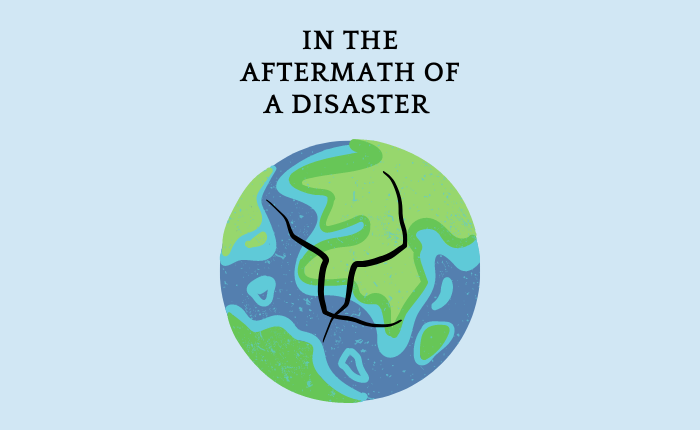In a heart-breaking disaster, southern Turkey and Syria went through agonizing days. By a 7.7 magnitude earthquake in the early hours of the morning of February 6, tens of thousands of people lost their lives, and millions were displaced from their homes. A few hours after, the region was shaken by another major earthquake. Almost all the standing buildings in the region collapsed. A month later, earthquakes of varying intensity are still occurring in the region.
While tents and containers continue to be provided for the millions of people left homeless in the aftermath of this tragic event, where they will go and what they will do in the long term is still a question for them. Most of the people who suddenly lost their homes, families, acquaintances, workplaces, and jobs have moved to other cities because they do not want to or cannot stay in these cities due to difficult living conditions and fear. While it may seem early to talk about the impacts of forced migration at this stage, it is unclear how many of these millions will return, and how many will start a new life in another city.
Forced migration happens when groups do not feel safe in situations such as war, natural disasters or climate change and leave the region to settle elsewhere. This migration movement can take place between countries or in the form of internal migration. The forced migration that Turkey currently witnesses is largely an internal migration. Millions of people leaving the Southeast region migrate to cities in Central Anatolia, the Mediterranean, the Aegean, and Marmara regions. Initially, it was the fear and loss that push millions of people to leave their cities. So, how permanent this movement will be is still unknown. What happened is included in the definition of migration, of course, but migration is not just the process of a person or a group moving from one point to another. The experiences of people who go to a safe city for a short period of time and then return to their city will differ significantly from the experiences of people who decide not to return to their city.
People who are now part of this migration experience are burdened with many emotions, not least grief. Since they will be mourning their loss for a long time, it will not be possible for them to make plans to return to life and reconnect. Disaster and the forced migration that follows have emotional repercussions such as mourning, loss and shock, but also economic and social consequences.
A very large and extremely important region in terms of agriculture and industry has been devastated. The revival of this region will take years, perhaps longer without a good implementation of planning. The region has also suffered a serious loss of human resource, both in terms of our losses and those who migrated. But it is not sufficient to talk only about the economic effects in this region. Millions of people who migrated will naturally struggle to find jobs and survive in other cities. The economic income of people who have been forced to migrate is also often disrupted. For business owners and people without the option to work remotely, there is an obligation to find a new job. In a country with an advanced economy, it will be relatively easy for young people to find new jobs, while for older people it may take a little longer to start from scratch. However, as Turkey has already been in an economic crisis in recent years, job opportunities are not abundant, neither for the elderly nor for the youth.
For people who lost their families, relatives, acquaintances and jobs in the earthquake, a serious social capital deficit also emerges. For all the people in this region, but most of all for those who leave the region and try to establish a new life in other cities, the concept of social capital has been either lost or been seriously interrupted.
Social capital is not only one of the primary means by which we all receive social support in our lives, but it is also a set of networks in practical matters such as finding a job or finding a flat. It is psychologically considerably difficult to lose social support. Moreover, the lack of networks to be consulted and get helped with practical everyday issues creates significant practical hardship in life.
As exemplified above, there will be inevitable social impacts. In the aftermath of such huge disasters the response is crucial. It is significant that this mobilisation of help and support to the area is long-term as well as collective. Social capital is built over a very long time. Economic development also requires a long time. Therefore, there is a need for a long-term support mechanism both in the cities where people migrated and in the region for those who did not choose to migrate. It should not be forgotten that today’s assistance in terms of water, food and tents is only a first response and a good planning strategy should be started with multiple actors (including local actors and NGOs) for everything that will be needed in the following months ad perhaps years. In our next blogpost, we will discuss how local actors could play a role in this long-term support.

